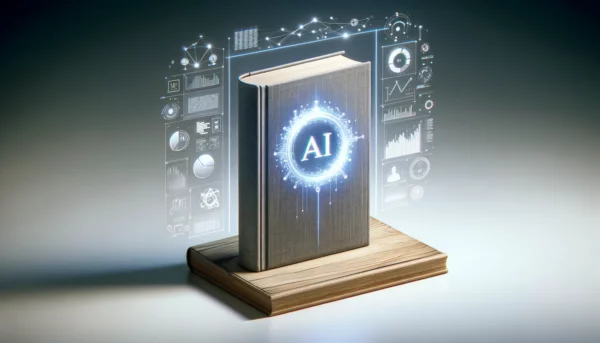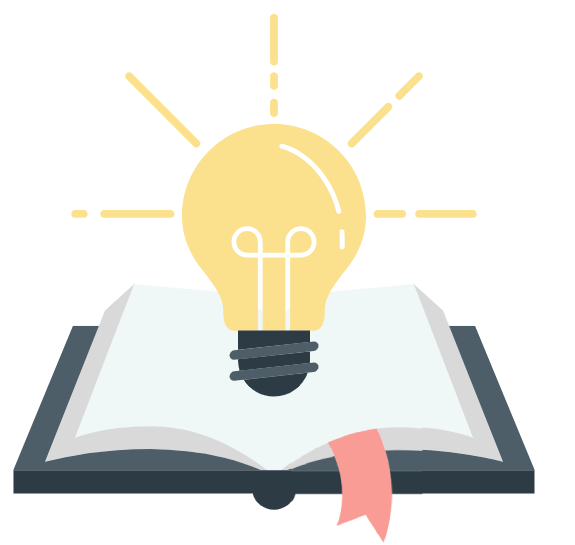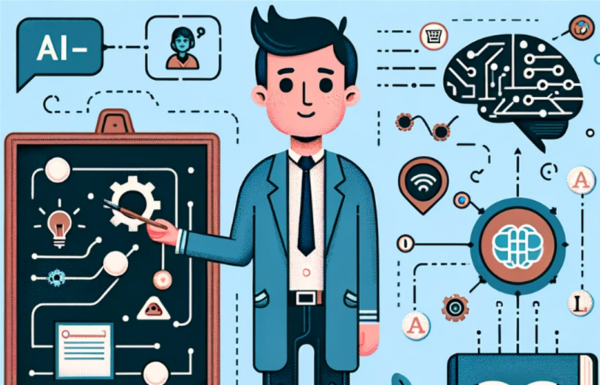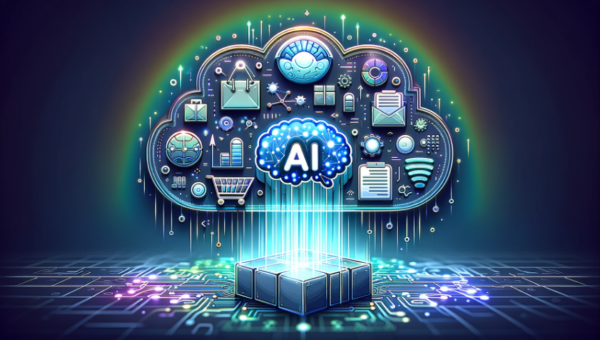The book sales industry, a vital intersection of culture and commerce, finds itself at a pivotal juncture. The entry of Artificial Intelligence (AI), including large language models, into this domain has initiated a significant transformation, affecting every facet of how books are marketed, sold, and created. This change is not just incremental; it represents a fundamental shift in the dynamics of the industry.
AI: A New Force in the Publishing World
AI, once a concept relegated to the realms of science fiction, has now emerged as a formidable force in the publishing industry. Its integration into various aspects of publishing is driving substantial changes. From altering marketing strategies to revolutionizing the distribution and writing of books, AI’s role is multifaceted and expanding. This technological leap forward, however, is not without its complexities and challenges, necessitating a careful and nuanced understanding by all stakeholders involved. The Challenges with AI in book sales are significant and diverse, presenting both opportunities and hurdles.
Start Your Publishing Journey FOR FREEExploring the AI-Driven Transformation
This article aims to delve deeply into the nuances of AI’s integration into book sales. It seeks to unravel the complexities and challenges this integration presents. Our exploration will cover the transformative impact of AI tools and algorithms on the industry, examining how they affect publishers, authors, and retailers. We will also delve into the ethical considerations that these changes bring to the forefront.
The Dual Nature of AI’s Influence
As we navigate through this exploration, it is essential to acknowledge the dual nature of AI’s influence on the book industry. On one hand, AI offers groundbreaking ways to connect readers with books and to streamline publishing processes. It promises efficiency, personalization, and a new horizon of possibilities in book distribution and marketing.
On the other hand, AI brings forth challenges like market saturation and raises concerns over data privacy, and the fear that it will replace writers. These challenges pose questions about the future shape of the literary world and the role AI will play in it.
Aims and Goals of the Article
Our goal through this article is to provide a comprehensive understanding of these challenges and opportunities. We aim to offer insights into how the industry can harness the potential of AI while carefully managing and mitigating the risks it presents. As we journey through this new landscape of book sales in the era of AI, we invite readers to join us in understanding and shaping this evolving narrative.

Challenges with AI in Book Sales
The integration of Artificial Intelligence (AI) in book sales has ushered in a new era of challenges and opportunities for the publishing industry. From disrupting traditional sales models to reshaping marketing strategies, AI’s impact is profound and far-reaching.
This section explores the various challenges posed by the advent of AI in book sales, focusing on its effects on competition, privacy concerns, and market dynamics.
Start Your Publishing Journey FOR FREECompetition with AI-Powered Platforms
The advent of AI-powered retail platforms has brought a paradigm shift in the book sales industry, particularly affecting traditional brick-and-mortar bookstores.
These AI-driven entities, such as online stores such as Amazon, use sophisticated algorithms to offer personalized book recommendations, optimized search results, and dynamic pricing strategies, providing a level of convenience and customization that traditional stores struggle to match.
As a result, many independent bookstores find themselves grappling with decreased foot traffic and sales, as customers increasingly favor the efficiency and tailored experience of online AI-driven retailers.
The competitive pressure is further exacerbated by AI-powered platforms’ ability to leverage large-scale data analytics for efficient supply chain management and predictive stocking, aspects where smaller stores often cannot compete due to limited resources.
Moreover, this technological shift to self-publishing also poses significant challenges for independent authors and small publishers. The AI-powered algorithms used by large online platforms tend to favor books with established sales records or those from well-known authors and publishers.
This bias can create a feedback loop where popular books get more visibility, while new or niche works by independent creators struggle to gain traction.
Consequently, the vast majority of these authors and publishers must either adapt by investing in AI-driven marketing strategies themselves or seek alternative, often less lucrative, avenues to reach their audience.
Customer Data Privacy Concerns
AI’s growing role in book sales has raised serious data privacy concerns. AI tools in e-commerce platforms collect vast amounts of customer data to enhance user experience and sales predictions. This data includes browsing habits, purchase history, and even personal preferences.
While this information can be invaluable for providing personalized recommendations and targeted marketing, it also raises ethical questions about the extent of data collection and its usage.
Customers are increasingly aware and concerned about how their data is being used and stored. There is a growing demand for transparency and control over personal information.
Legal considerations, such as the General Data Protection Regulation (GDPR) in the European Union, impose strict guidelines on data handling, but the application and enforcement of such regulations can be challenging in the rapidly evolving digital landscape. Companies must navigate these concerns carefully to maintain customer trust while leveraging the benefits of AI.
AI-Driven Market Saturation
The use of artificial intelligence to create AI-generated literature is leading to a new challenge: market saturation. AI-assisted or generated literature, ranging from algorithmically curated anthologies to AI-written novels, is flooding the market.
While this can democratize content creation and offer a wider range of material, it also raises concerns about the quality and diversity of available literature.
AI algorithms are typically designed to replicate patterns found in existing successful works, which can lead to a homogenization of content. The unique voices and unconventional narratives that often come from human authors might be overshadowed by formulaic AI-generated content.
This trend could lead to a literary landscape where diversity in storytelling suffers, and the rich tapestry of human experience and creativity is diminished.
Additionally, there’s a concern about the sustainability of the book market with an overabundance of AI-generated content, which could overwhelm consumers and diminish the perceived value of individual works.

AI and Changing Reader Behaviors
The integration of various Artificial Intelligence tools (AI) in the book industry has significantly influenced reader behaviors and expectations, marking a noticeable shift in consumer patterns. AI, primarily through personalized AI-generated content and recommendations, is reshaping how readers interact with books and their overall reading experience.
AI-driven personalization has redefined the discovery process for readers. Platforms equipped with AI algorithms analyze individual reading habits, preferences, and even the nuances of previously enjoyed genres and authors.
This deep, data-driven understanding allows platforms to offer highly tailored book suggestions. The impact of this is twofold: readers are now exposed to a broader range of books that align closely with their interests, and they are more likely to explore genres and authors they may not have discovered otherwise.
This tailored approach has led to a more efficient and satisfying browsing experience, encouraging readers to engage more deeply and frequently with reading material.
Furthermore, AI’s influence extends beyond just book recommendations. It is also changing expectations around content interaction. Features like AI-generated summaries, reading time estimates, and automated queries about book preferences further personalize the reading experience.
This level of customization is setting a new standard in the industry, with readers beginning to expect these AI-driven enhancements as part of their regular reading experience.
Additionally, the convenience offered by AI has led to a shift in consumer patterns. With AI-powered apps and e-readers, the ease of accessing and purchasing books has never been greater.
This accessibility has contributed to an increase in reading among various demographics, particularly among those who value the immediacy and convenience that digital platforms provide.

AI’s Impact on Book Marketing Strategies
The incorporation of Artificial Intelligence (AI) in the book industry has fundamentally altered the marketing approach. AI’s capabilities have opened new avenues for advertising, customer engagement, and promotional tactics, offering publishers and authors innovative ways to reach and resonate with their audiences.
AI-driven advertising has become more sophisticated and targeted. By leveraging data analytics, AI can identify potential readers based on their browsing habits, past purchases, and even social media activity.
This precision allows for the creation of highly tailored marketing campaigns that are more likely to engage the intended audience. For instance, AI can help in segmenting audiences and creating personalized written content that speaks directly to the reader’s preferences, increasing the likelihood of conversion.
Customer engagement has also been transformed by AI. Chatbots and AI-driven customer service are now common on book-selling platforms, providing immediate assistance and recommendations to customers.
These AI tools can answer queries, recommend books based on user preferences, and even assist in the navigation of online bookstores, enhancing the overall customer experience. This level of engagement keeps customers engaged with the platform, increasing brand loyalty and repeat purchases.
Furthermore, AI has revolutionized promotional tactics in the book industry. AI algorithms can analyze large sets of data to determine the most effective times and platforms for launching book promotions.
They can also predict emerging trends, enabling publishers and authors to tailor their promotional activities to current market demands. Additionally, AI tools can write and optimize email marketing campaigns, send personalized messages to readers, and track the effectiveness of different promotional strategies in real-time.

Publishing Industry Adaptations
The publishing industry, historically reliant on traditional methods and practices, now faces the necessity of adapting to the age of AI. This adaptation is multifaceted, involving not only the integration of new technologies but also a shift in mindset and strategy.
Start Your Publishing Journey FOR FREETraditional vs. AI-Enhanced Publishing
Traditional publishing has been characterized by selectivity, editorial expertise, and a focus on quality written content. However, with the advent of AI, the industry is witnessing a paradigm shift. AI-enhanced publishing encompasses not just the use of algorithms in editorial decision-making by publishing platforms but also in marketing, distribution, and sales forecasting.
While traditional publishing methods emphasize human judgment and experience, AI-enhanced models rely on data-driven insights to predict trends, reader preferences, and potential bestsellers.
This approach can lead to more efficient operations and a targeted approach to marketing, but it also raises concerns about the potential loss of the nuanced understanding that human editors bring to the table.
Coping Strategies for Small Publishers and Authors
Small publishers and independent authors, who often lack the resources of larger entities, are finding innovative ways to leverage AI. For instance, they might use AI-driven analytical tools to identify market niches or employ AI-based marketing tools to reach specific reader demographics.
Social media platforms, with their algorithmic content delivery, are also proving to be valuable for these smaller players. They can engage directly with their audience, gather feedback, and tailor their offerings accordingly.
However, the key to success in this AI-driven landscape lies in balancing technology and human insight. While AI can provide valuable data and trends, the human element – understanding the emotional resonance of a story, the nuances of character development, and the intricacies of language – remains irreplaceable.
Successful small publishers and authors will be those who can merge AI’s analytical prowess with the irreplaceable creative and empathetic aspects of the human mind.

AI Tools in Book Sales and Marketing
The book industry’s adaptation to the digital age has been significantly influenced by the integration of AI tools in sales and marketing tactics. These tools are reshaping how books are marketed, sold, and distributed, offering new opportunities and challenges for the publishing industry and retailers.
Personalized Recommendations and Targeting
One of the most noticeable impacts of artificial intelligence in book sales is that meant companies can provide personalized book recommendations. Platforms like Amazon and Goodreads are at the forefront of this innovation, utilizing AI-powered algorithms to analyze a user’s past behavior, preferences, and even reviews to suggest books they might enjoy.
This personalization extends beyond mere suggestions; it plays a critical role in targeted marketing. AI tools assist publishers and retailers in identifying and reaching potential customers more effectively, tailoring their marketing efforts to align with individual user preferences.
The benefits of personalized marketing through AI are manifold. By suggesting relevant stories and books, AI helps customers discover titles they might not have found independently, leading to increased sales.
Moreover, personalized recommendations significantly enhance the user experience, making the shopping experience more engaging and efficient. This, in turn, fosters customer loyalty, as consumers feel understood and valued when they receive tailored suggestions.
However, this approach is not without its drawbacks. Privacy concerns are paramount, as the collection of data necessary for personalization raises questions about how this information is used and stored.
Additionally, there’s a risk of creating an echo chamber effect, where customers are only exposed to books similar to those they have previously enjoyed, potentially limiting their exposure to a broader range of genres and ideas.
Furthermore, AI-powered algorithms might perpetuate existing biases in book selection, favoring popular genres or authors and marginalizing niche markets.
AI in Inventory and Sales Prediction
AI tools are also revolutionizing inventory management and sales prediction in the book industry. Through predictive analytics, AI systems are capable of forecasting trends, anticipating customer demand, and optimizing stock levels.
In terms of inventory management, AI algorithms analyze historical sales data, seasonal trends, and current market conditions to predict future book sales.
This capability allows retailers and publishers to manage their inventory more efficiently, reducing the costs associated with overstocking or stockouts.
Additionally, AI enables dynamic pricing, adjusting book prices in real-time based on demand, competition, and market trends. This not only maximizes profits but also ensures competitive pricing.
Moreover, AI tools are instrumental in market trend analysis and gaining insights into consumer behavior. By examining customer data, AI can identify emerging trends in reader preferences, enabling publishers and retailers to stay ahead in terms of the types of books they publish and stock.
These insights are invaluable for publishers and authors, aiding them in tailoring their content creation and marketing tactics to meet the needs and preferences of their target audience.

Deep Dive into Artificial Intelligence
The increasing influence of Artificial Intelligence (AI) in the book industry is a testament to the technology’s versatility and transformative potential. This section provides an overview of the AI technologies pertinent to the rapid evolution of the book sales sector and explores the ethical and technical challenges they present.
Understanding AI Technologies in the Context of Book Sales
The landscape of AI technology in book sales is diverse, incorporating various technologies each playing a distinct role. Machine Learning (ML) stands at the forefront, with machine learning algorithms analyzing historical data to make predictions or decisions.
This is particularly evident in predicting market trends, customer preferences, and sales. For instance, ML algorithms can sift through vast sales data to identify potential bestsellers or market shifts.
Complementing ML is Natural Language Processing (NLP), a technology that allows computers to understand, interpret, and manipulate human language.
In the realm of book sales, natural language processing finds its use in customer service chatbots, analysis of customer reviews, and even assisting in the writing and editing process of books.
It enables a more nuanced and sophisticated interaction between AI systems and human language, an essential aspect in a field as deeply rooted in language as book sales.
Additionally, data analytics, driven by AI technology, plays a crucial role in analyzing data to uncover hidden patterns and insights.
This new technology is at the heart of personalized marketing, inventory management, and understanding consumer behavior. It allows retailers and publishers to tailor their strategies based on concrete data-driven insights.
In terms of practical applications, AI has been integrated into several key areas of book sales and distribution. Personalized recommendation engines used by online retailers are a prime example.
These AI systems recommend books to customers based on their browsing history and purchasing history, significantly enhancing the user experience.
Automated inventory management systems, powered by AI algorithms, predict stock requirements and automate replenishment orders, thus optimizing inventory levels and reducing wastage.
In publishing, AI is making inroads in manuscript screening and editing, streamlining the publishing process and aiding publishers in making more informed decisions.
Start Your Publishing Journey FOR FREEEthical and Technical Challenges
However, the integration of AI in book sales is not without its challenges. Balancing AI efficiency with ethical considerations is a significant concern. Data privacy and security are paramount, as AI systems rely heavily on user data.
Ensuring the privacy and security of this data necessitates transparent data policies and user consent. Additionally, there’s the issue of bias and fairness. AI systems can inadvertently perpetuate biases present in their training data, making fairness in AI-powered algorithms, especially in personalized recommendations and content curation, a critical ethical challenge.
Technical limitations also pose ongoing challenges in AI development. The accuracy of AI predictions and decisions heavily depends on the quality of data and algorithms used.
Misleading or incomplete data can lead to inaccurate predictions, potentially affecting business decisions and customer satisfaction. Furthermore, the “black box” problem, where understanding how AI models make decisions remains elusive, is crucial for trust and accountability.
As the book industry is dynamic and subject to rapidly changing consumer tastes and market trends, AI systems must continuously evolve and adapt to remain relevant and effective.

The Future of AI Algorithms in Book Sales
As the book industry continues to intertwine with technological advancements, AI algorithms are poised to play an even more integral role. Anticipated developments in AI are likely to further refine personalized recommendation systems, making them more accurate and encompassing. This could lead to a more immersive and tailored reading experience, where AI not only suggests books based on past behavior but also on mood, current events, or even the weather.
Another emerging trend is the use of AI in content creation. We may see more AI-assisted writing tools becoming mainstream, helping authors to work effectively by assisting in everything from plot development to language style optimization. For publishers, advancements in AI could mean more sophisticated and accurate data analysis tools for market prediction and trend analysis, enabling more strategic decision-making.
Furthermore, AI might soon play a role in addressing its own ethical challenges. Developments in AI ethics could lead to more transparent and fair algorithms, ensuring a balanced and diverse literary marketplace.
Throughout this article, we have explored the multifaceted role of AI in the book sales industry. From transforming approaches to marketing with personalized recommendations to revolutionizing inventory management and shaping future market trends, AI’s footprint is undeniable. However, this journey is not without challenges. Ethical considerations, particularly in data privacy and algorithmic bias, alongside technical limitations, remain significant hurdles.
In conclusion, the future role of AI in book sales is one of immense potential coupled with responsibility. As the industry moves forward, the key will be in harnessing AI’s power to enhance and enrich the literary world while conscientiously addressing the challenges it brings. The future of book sales, in this AI-driven era, looks to be a fascinating blend of technology and tradition, innovation, and human creativity.







